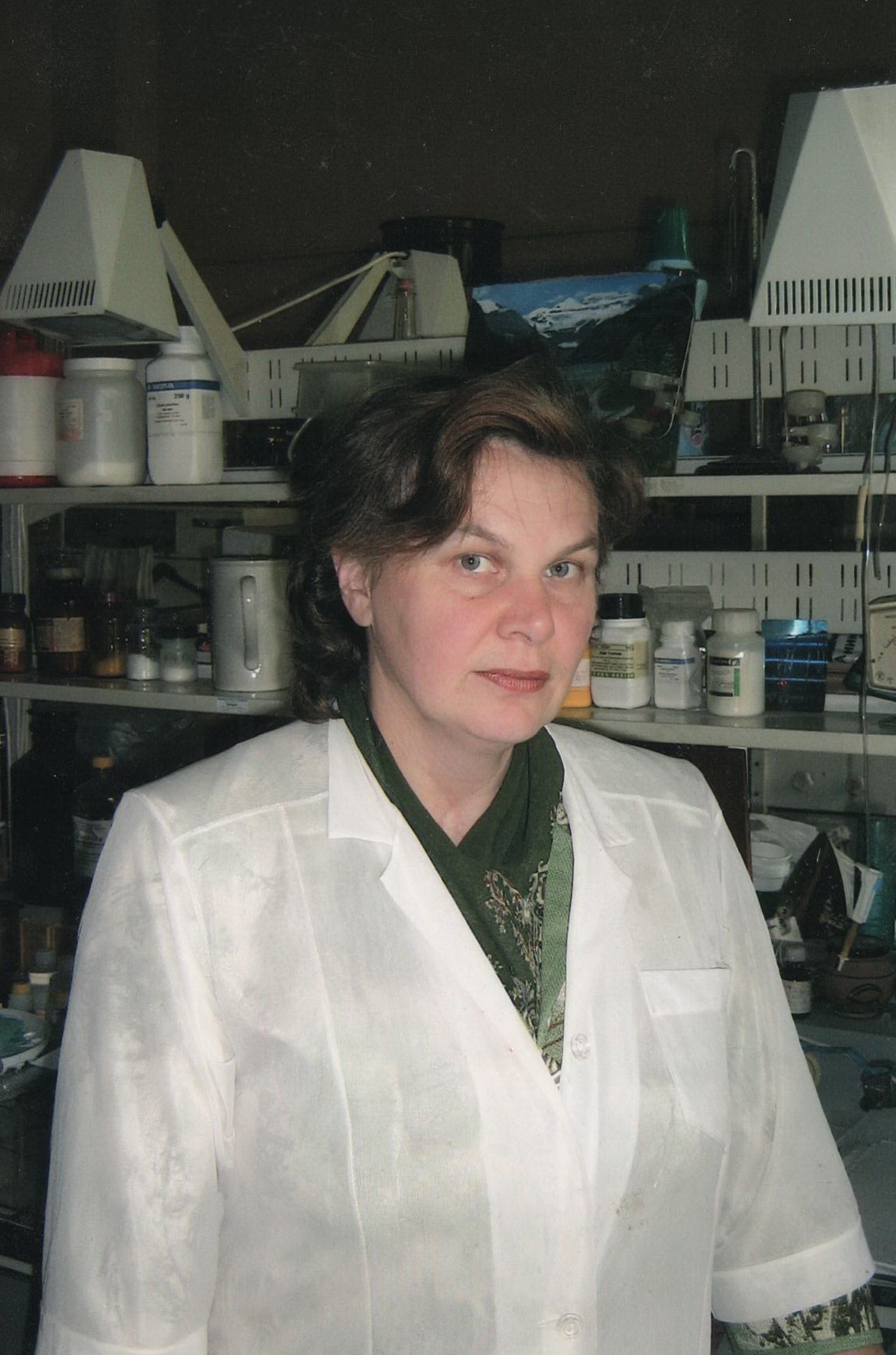Laboratory of Immunology and Molecular Research
Head of the Laboratory,
 Candidate of Biological Sciences
Candidate of Biological Sciences
Irina Mikhailovna Odoevskaya
The Laboratory was set up in 1953 and works in the following areas: study on the composition of mineral elements and their quantitative content in helminths; study on the amino acid composition of proteins; study on physico-chemical and antigenic characteristics of active proteins in helminths; gene identification and cloning of diagnostic and protective proteins in parasites; creation of genetically engineered constructs as required to create diagnosticums and recombinant vaccines.
A biological drug based on recombinant antigens was created for immunodiagnostics and immunoprophylaxis of larval Cestode infections in animals and humans.
As a result of genetic testing of closely related protozoa (Toxoplasma, Neospora and Sarcocyst), amplification test systems based on polymerase chain reaction (PCR) were developed to diagnose neosporosis and toxoplasmosis in livestock and domestic animals.
An amplification test system based on PCR - RFLP was developed for taxonomic differentiation of parasites. Genomic testing of echinococcus isolates was conducted in Russia.
We studied the immunogenesis in a number of helminth infections, the helminth antigenic structure, the immune response of the host organism to invasive antigens, and possibilities of their use for lifetime diagnosis of parasitic zoonosis.
Epizootic monitoring was performed for the most socially significant zoonotic helminth infections in invasion foci in territories of the Far Eastern Federal District (Primorsky Krai, Yakutia), Eastern Siberia, the Caucasus region, the Voronezh and the Moscow Regions. A new direction in helminthology was initiated, so-called trichinellosis epidemic geography. Algorithms were developed for molecular taxonomic identification of Trichinella spp. that allow identifying intraspecific differences and "imported” Trichinella infection.
Thirty-eight nucleotide sequences of the Trichinella genome isolated from natural and synanthropic biocenoses were deposited in the NCBI GenBank International Database. A collection of Russian Trichinella isolates is presented at the ITRC International Trichinellosis Reference Center (Rome, Italy) and the European Union Reference Laboratory for Parasites (EURLP).
The composition of Trichinella excretory-secretory proteins were studied using immunochemical methods. The results of the studies were published in the following journals: Veterinary Parasitology (Q1), Journal of Helminthology (cambridge.org- Q2), Russian Journal of Nematology, Journal of Veterinary Medicine, Czech Polar Reports, Helminthologia (Q3), Comptes rendus de L'academie bulgare des Sciences, and Nature Conservation Research (Web of Science, Scopus, Q2).
The Laboratory staff participated in implementation of the international grant in 2009-2011, 2012-2014 (directed by L.A. Bukina) - "Grant North Pacific Board, USA, Project No. 914 "Trichinellosis in marine mammals as a zoonotic disease, and possible ways of transmission of trichinellosis to humans in the Chukchi Peninsula", and implemented the following personal grants of the Russian Science Foundation: “Development of innovative means of diagnostics, prevention, and therapy of socially dangerous parasitic infections in humans and animals based on studied molecular genetic and adaptive features of their pathogens"; No. 14-16-00026 (2014-2016); RSF No. 14-16-00026P (2017-2018); No. 23-26-00220 (2022-2023) "Biological and molecular genetic aspects of resistance formation during anthelmintic therapy of strongylatosis in small ruminants" (directed by I.M. Odoevskaya).
The results were obtained for the spread of anthelmintic resistance among populations of gastrointestinal parasitic nematodes in small cattle in the European part of the Russian Federation.